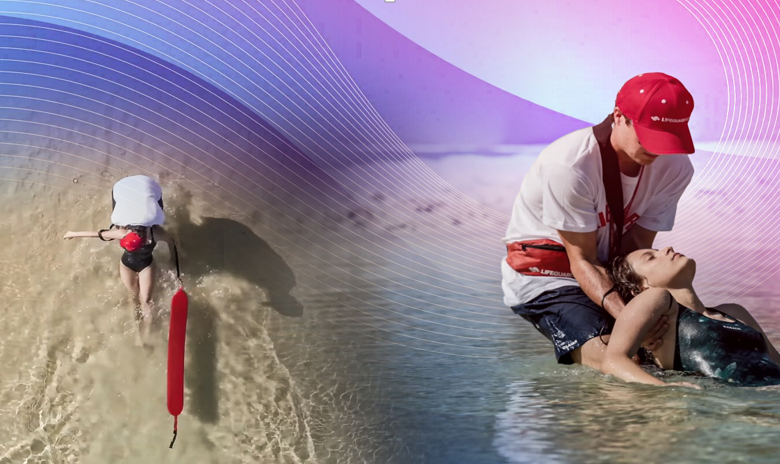New Ways to Find Water Safety Careers Through Lifeguard Classes

The lifeguard and water safety profession is very demanding nowadays, and opportunities exist beyond the traditional swimming pool-beach settings. Lifeguard classes provide all the right training for entering the rewarding field, whether you are a summer worker, a long-term job seeker, or a greater contributor to your community.
This article will examine the ever-changing nature of water safety careers, their importance in activating effective training, and how organizations such as the American Lifeguard Association (ALA) get aspiring lifeguards with the skills they need to be successful in this field.
The Melting Need for Lifeguards
More and more facilities are looking for certified lifeguards now that more awareness has been created regarding water safety. These places include community pools, waterparks, resorts, and even cruise ships. Many opportunities are being developed beyond the typical setting. Roles such as aquatic therapy, open-water rescue, and emergency response have created additional career paths available to people with lifeguard certification.
Taking American lifeguard classes is your first step to getting these lifeguarding jobs. These courses train you in skills like CPR and first aid, water rescue techniques, and emergency response protocols. Organizations like the American Lifeguard Association offer nationally recognized programs preparing individuals for real-world scenarios.
See: MathGames67: Revolutionizing Math Education with Fun and Engagement
Lifeguard Training: From Old to New
In the olden days, lifeguard certification was given mainly through face-to-face classes at local swimming pools or recreation centres. While these still exist today, there are newer options that have made lifeguard certification less of a hassle.
1. Hybrid Learning Options
Many organizations now offer blended learning, which combines online coursework and in-person skills assessments. Such flexibility allows students to complete theoretical training on their own time before demonstrating hands-on techniques in a controlled environment.
2. Virtual Reality (VR) Training
Some state-of-the-art programs integrate VR simulations into lifeguard training. Trainees can be required to respond to real-life emergencies in a virtual environment, making their critical decision-making process better before facing a real-world scenario.
3. Specialized Lifeguard classes
In addition to general certificates, other specialized courses interested students can pursue include:
- Wilderness Lifeguarding – dealing with lakes, rivers, and general open-water rescues
- Waterpark Lifeguarding – being trained specifically towards slides and wave pools
- Aquatic Facility Management – to prepare future supervisors
The American Lifeguard Association has many courses available to meet all kinds of career dreams because every lifeguard should be prepared for different environments.
Career Paths Other Than That of a Professional Lifeguard
Many lifeguards begin their lifeguarding careers in local pools or beaches; however, some certifications lead to more than just those locations:
1. Emergency Services and the Fire Department
Lifeguard training is a strong base for careers in emergency response. Most EMTs and firefighters began as lifeguards and now utilize their water rescue skills in a flood or marine emergency.
2. Cruise Lines and Resorts
Most high-end resorts and cruise lines employ lifeguards to ensure their guests’ safety while at pool, beach, or other water attractions. The travel aspect is a bonus, and salaries are generally competitive.
3. Aquatic Therapy and Rehabilitation
Lifeguards might be found in healthcare institutions working aquatically with patients to address mobility problems by performing exercises in the water as part of their aquatic therapy program.
4. Law Enforcement and Coast Guard
Police and Coast Guard water rescue teams often prefer lifeguards to become part of their water rescue teams, particularly in coastal areas.
Getting Started Lifeguard classes
If you’re thinking about a water safety career, follow these steps:
1. Find an Accredited Certification Program
Look for national programs recognized by national organizations, such as the American Lifeguard Association. Make sure the program covers:
- CPR/AED for professional rescuers
- First aid
- Water rescue techniques
- Spinal injury management
2. Meet Minimum Requirements
Most lifeguard courses may indicate the following:
- Minimum age (typically about 15 or 16)
- Swimming ability (ability to swim 300 yards continuously)
- Treading water for 2 minutes hands-free
3. Finish Training and Pass All Exams
When a student completes a course, they will need to take and pass the written and practical examinations to earn certification with the course.
4. Apply for Jobs and Get Experience
Starting at the bottom, take some entry-level positions at local pools or beaches, and later search into more niche roles as you gain experience.
Why the American Lifeguard Association?
American Lifeguard Association is a well-known face for lifeguard training. It offers:
- Nation-level certifications
- flexible learning such as hybrid courses
- experienced instructors with real-life experience
Their programs are tailored according to industry standards making graduates job-ready.
Final Words
The world of water safety careers is changing to be the most accessible ever for certified lifeguards. Enrolling in lifeguard classes carries you to exclusive skills that save lives while opening the door to more varied careers. Be it traditional lifeguarding emergency response or any other more focused area involving water, training is the avenue to success for all.
This training and certification should be from a reputable organization, such as that offered by the American Lifeguard Association. To lead you into this promising career, search and find a lifeguard course right away




